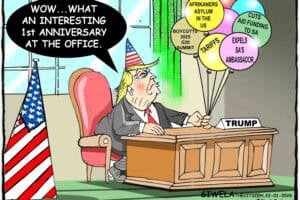South Africa, he said, is never short of material.
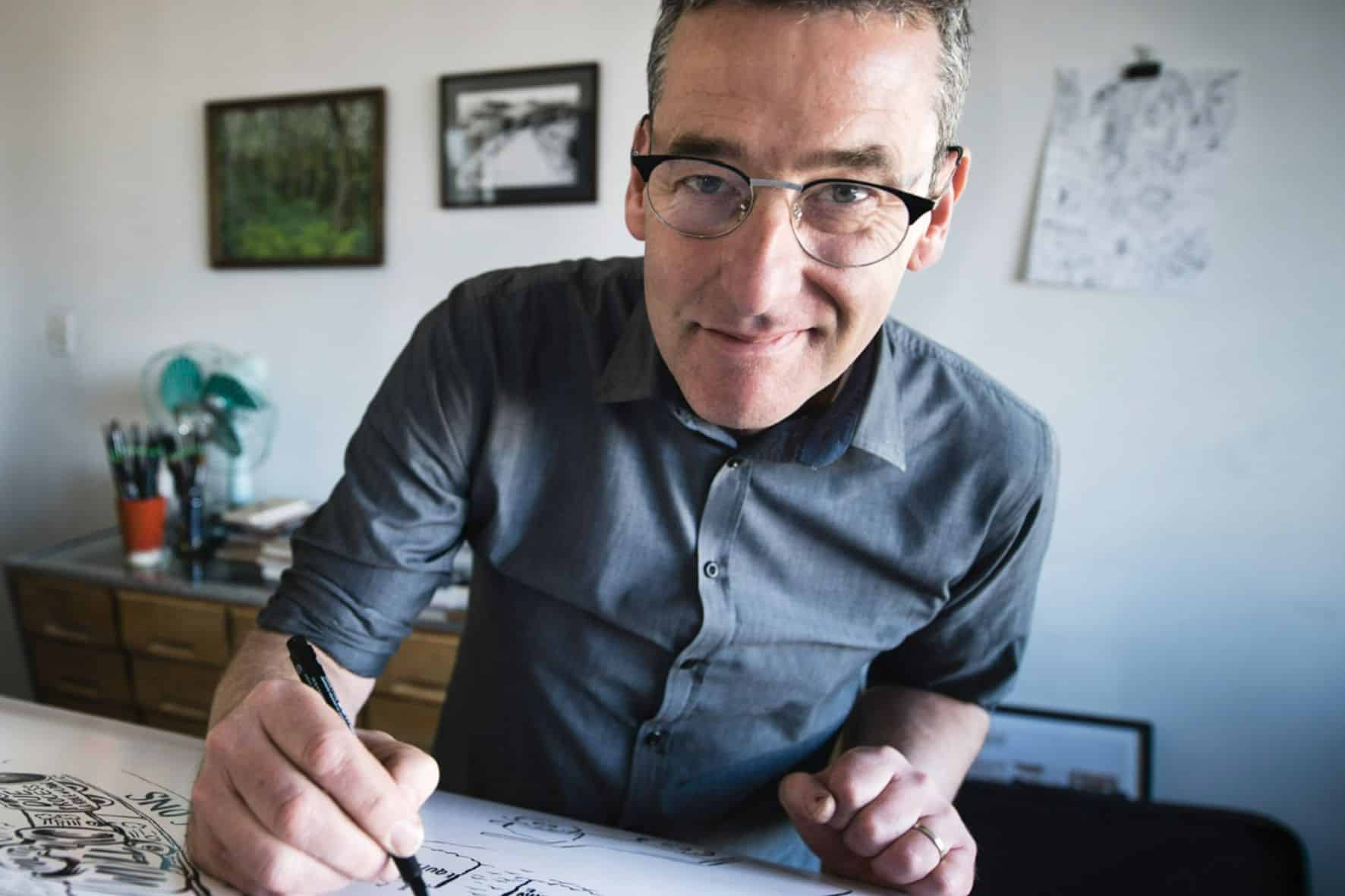
Imagine any politician holding up a mirror and not seeing themselves, but rather seeing their reflection in the cartoon-like satires published almost daily in newspapers and other media.
Illustrators and cartoonists probably have one of the most lekker jobs on the planet, because their canvases tell a thousand words in a single image.
Cartoons are the original memes, and Carlos Amato’s sardonic take on reality over the past eight years has been treasured by the collective in a new book titled This Is Wild.
It’s Amato’s job to make the country laugh at itself and to hold up that mirror for the political ruling class. His brush has Trumped, Zilled, Malemad and even given Thabo Bester a run. Amato’s humour is undeniable, yet he considers himself a serious kind of guy.
He’s a serious kind of guy
“I’m quite a serious person,” he said. “I’ve never been someone who cracks jokes all day. I’m a studious guy, and I spend most of my time in my studio.”
From there, he studies the mood of the nation and draws what he feels people already know but haven’t yet said aloud.
“People don’t necessarily want my view,” he said. “They want something that chimes with what they’re feeling. My job is to suss out what people are angry about, what they find funny, and plug into it without faking my own opinions.”
That is not as easy as it may sound.
“Each tribe lives in its own echo chamber,” he said. “You can gauge what liberals are thinking or what radicals are thinking, but there’s a whole lot of humanity drifting in between. They don’t buy into any of it. Those are the people I like to draw for.”
South Africa, he said, is never short of material.
“There’s always scandal,” he said. “But if it’s the same scandal as last week, even if it’s absurd, it gets boring. I must have done fifty cartoons about load shedding and another hundred about Covid. After a while, I couldn’t face drawing another Eskom plug or virus particle.”
There are days when he feels blessed by the madness of Mzansi, and others when the thought of another political disaster tires him.
“That’s the deal,” he said. “I can’t pick and choose what I respond to. Political cartoonists don’t have that luxury.”
Blessed by Mzansi’s madness
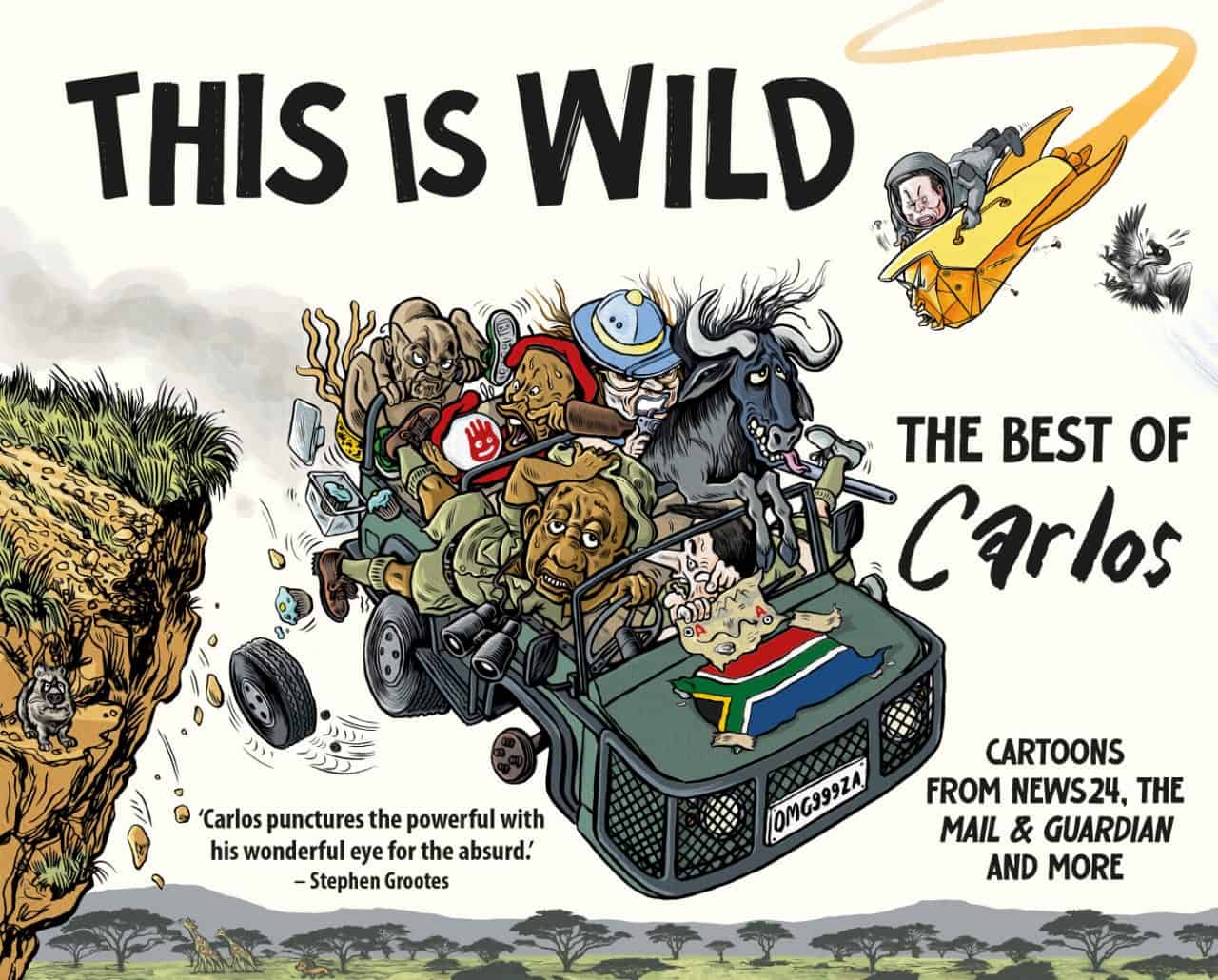
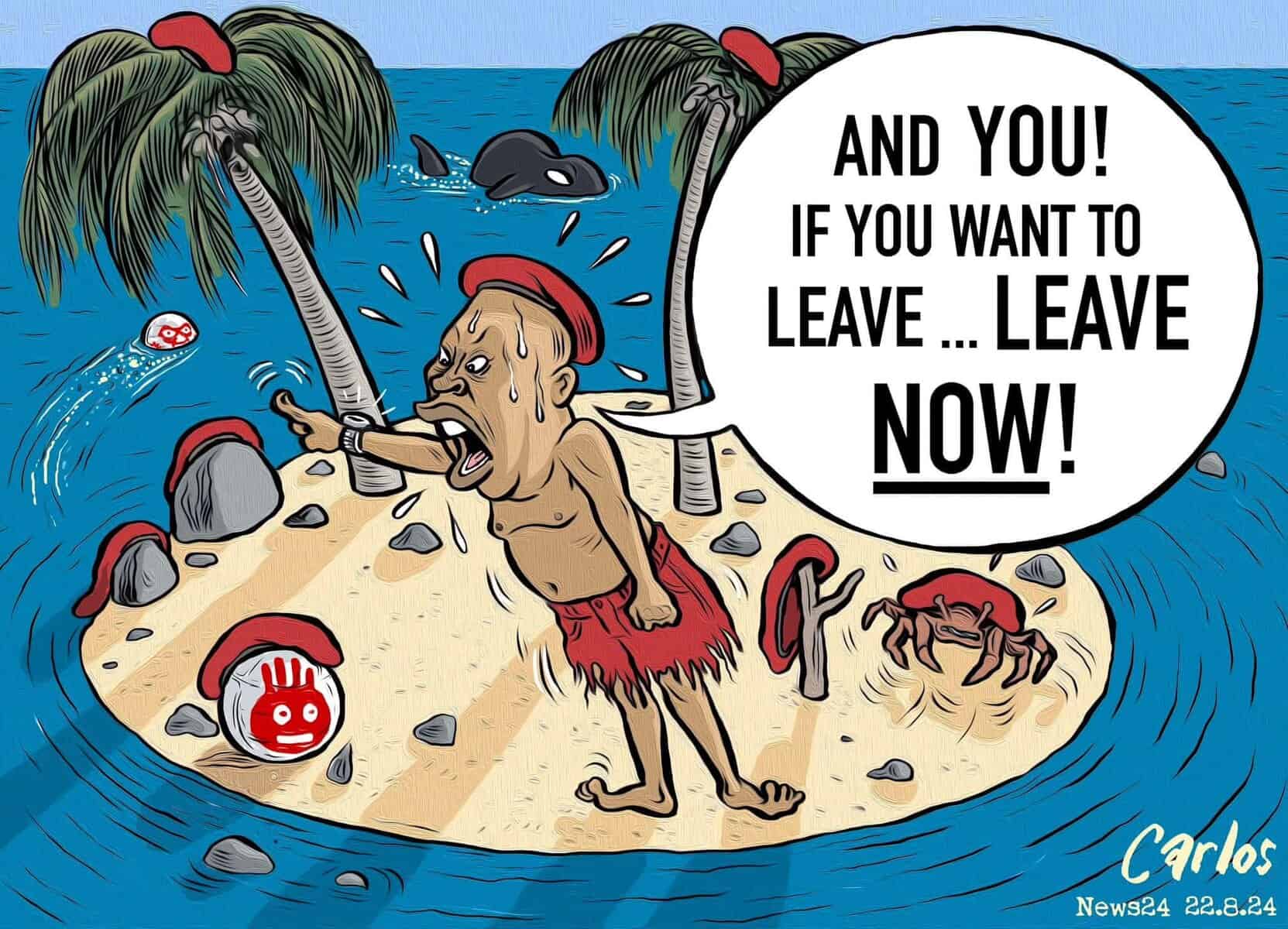
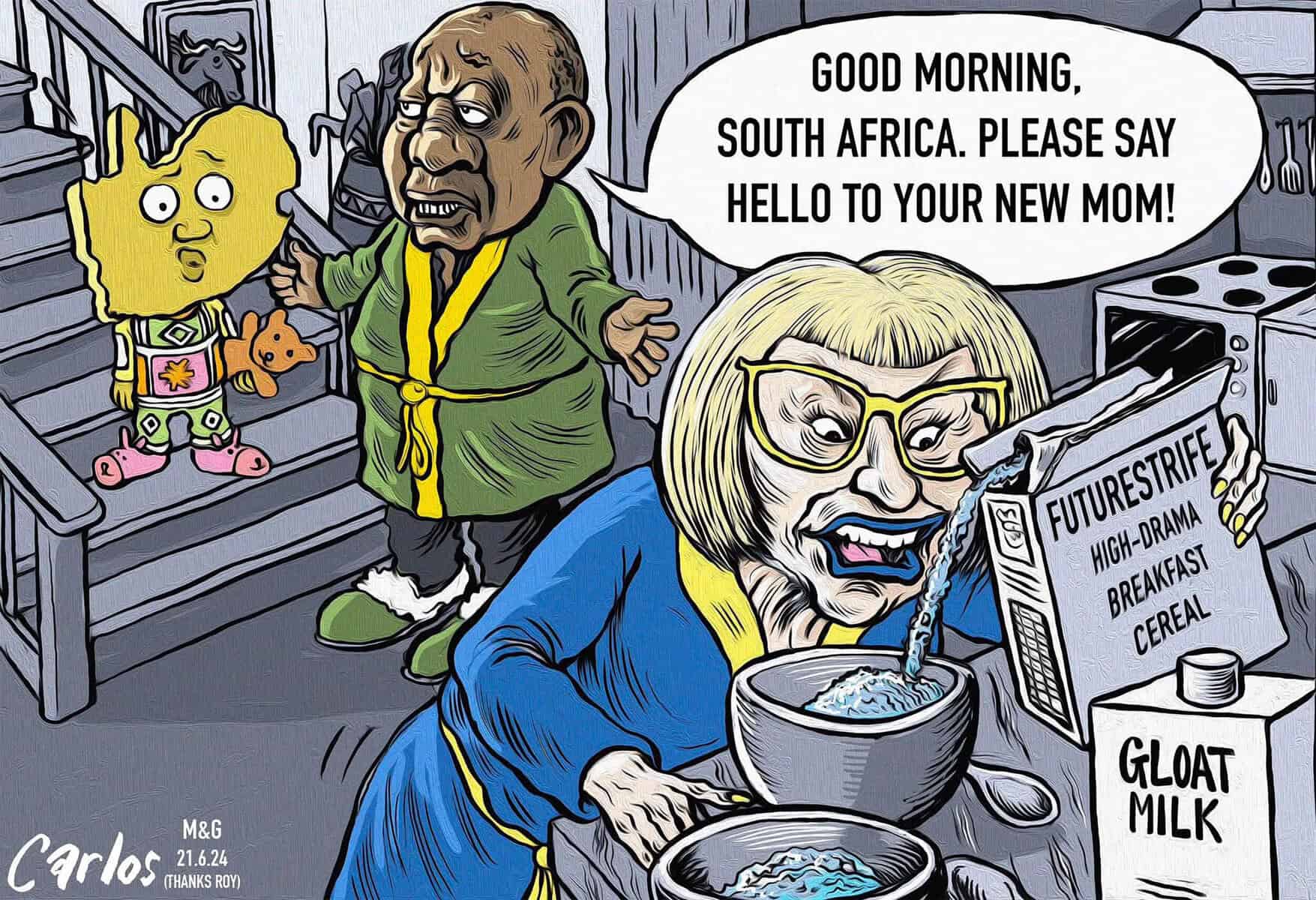
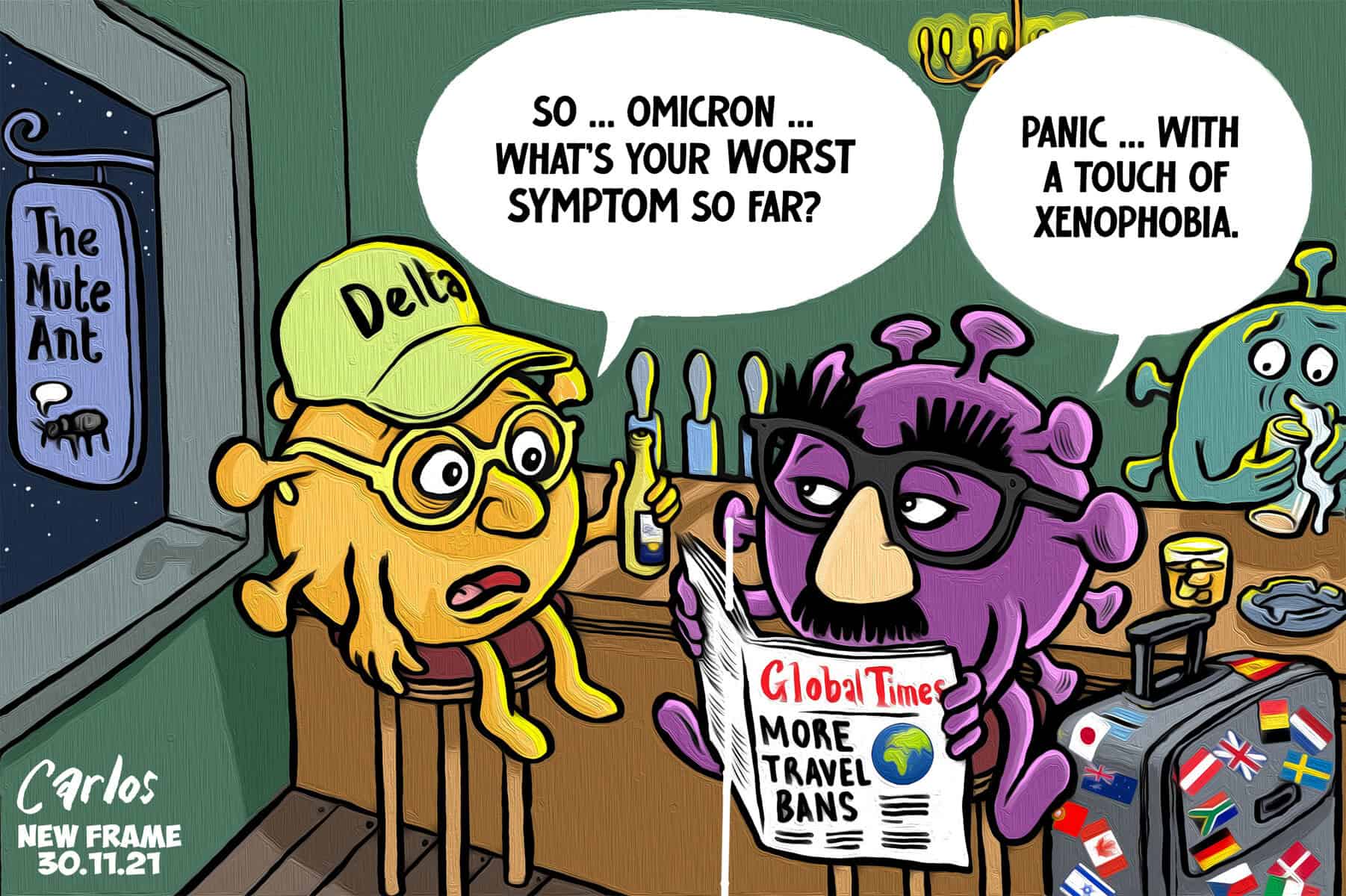
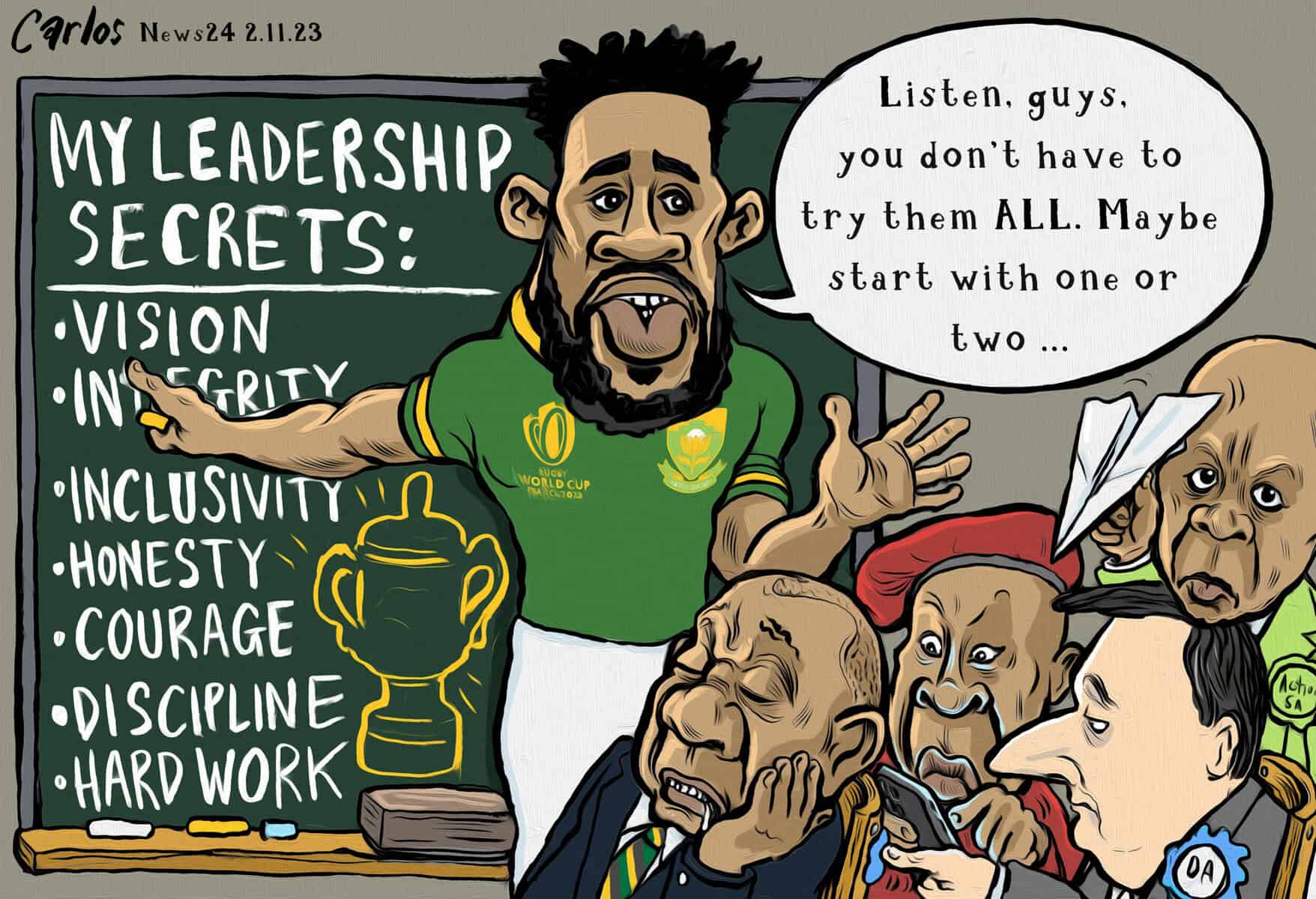
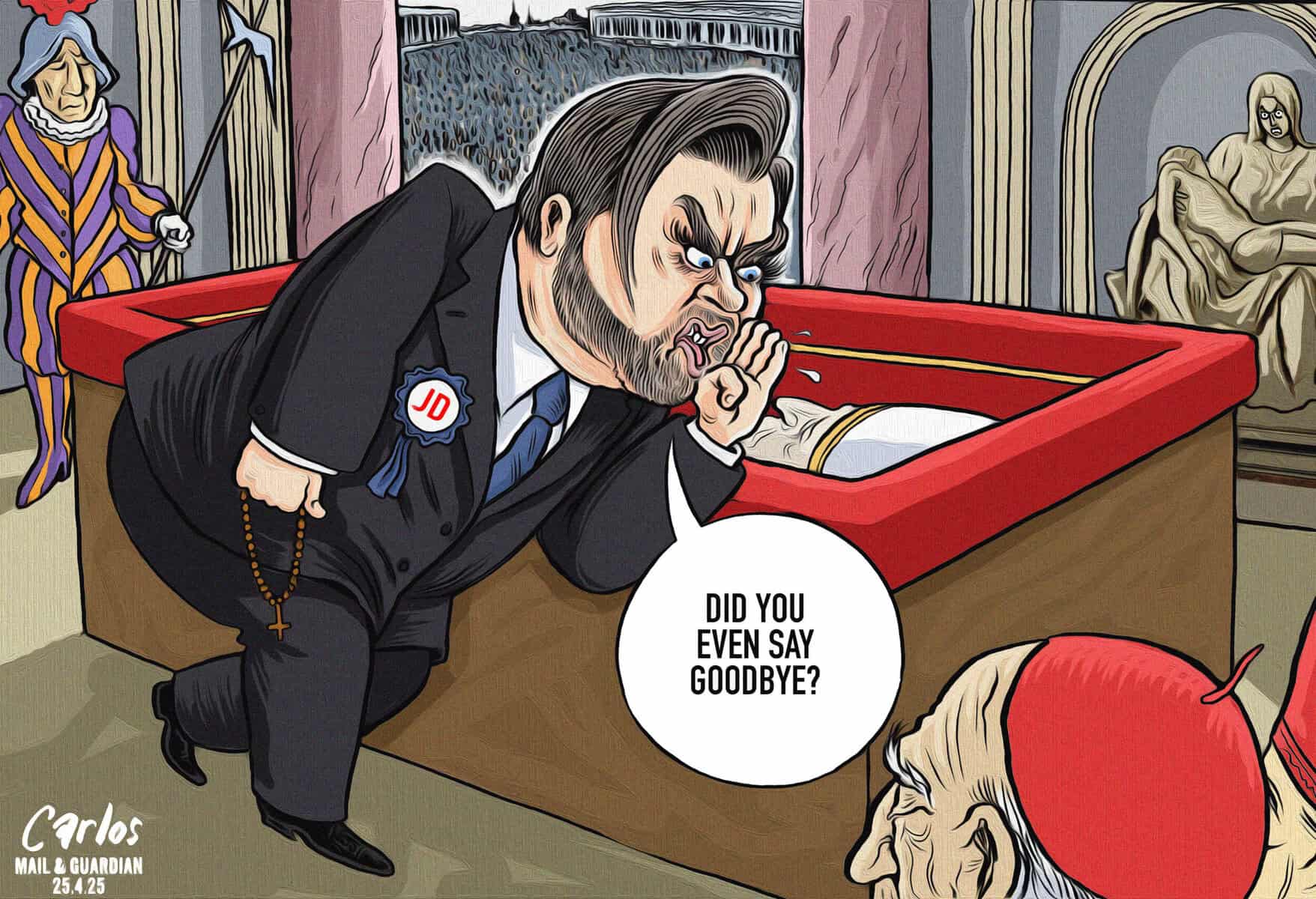
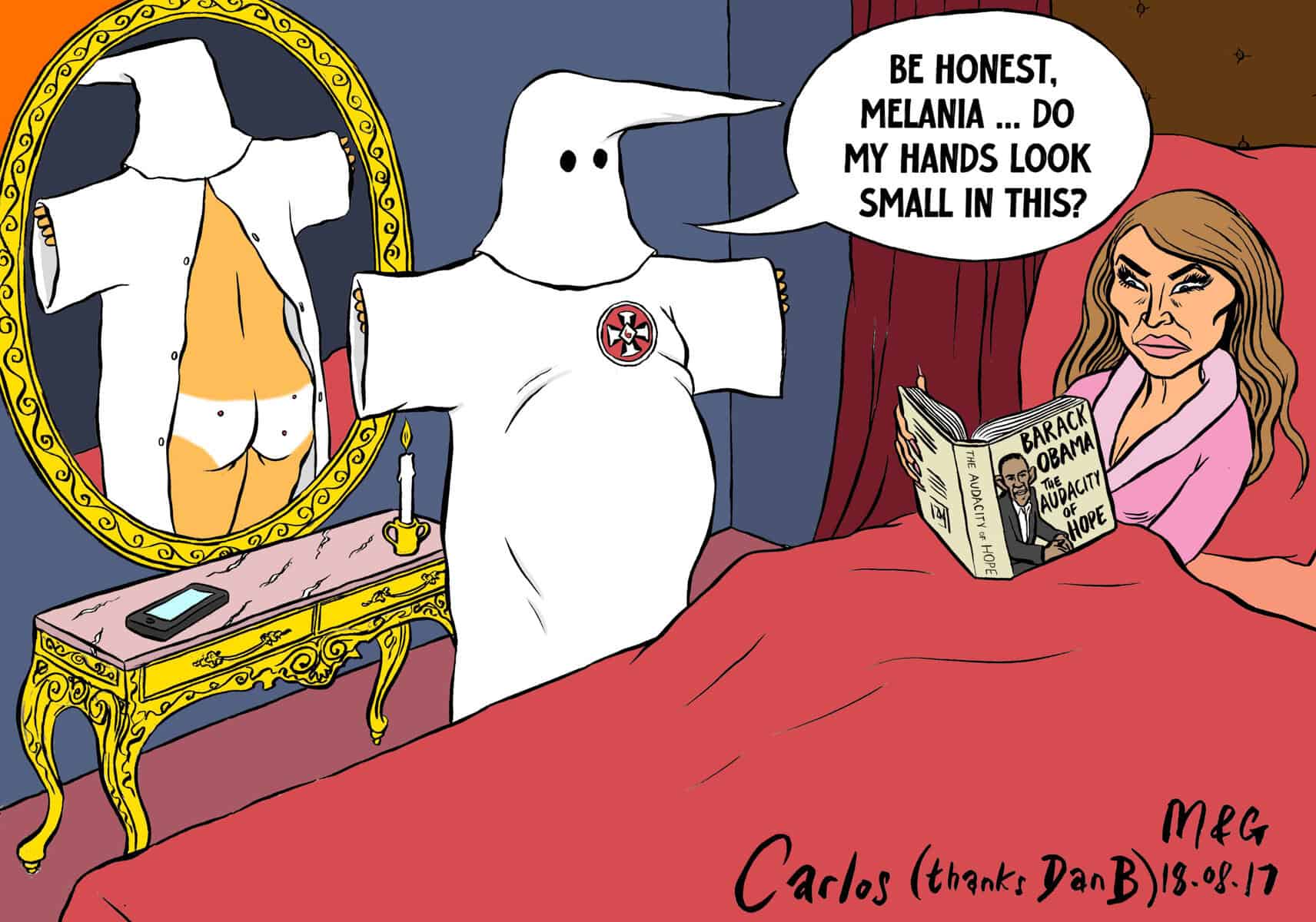
Cartoonists are a dying breed, said Amato.
“There are far fewer of us now than there were in the seventies or eighties. Satire is alive and well, but most of it is made by amateurs online. Some of it is brilliant, some awful, but the clickbait pretending to be satire is killing the credibility of the real thing.”
He added that artificial intelligence is hammering nails into creativity’s coffin, too.
“AI is a cheat,” he said. “It steals from real creators and cheats the public of the benefit of work and artistic friction. The struggle to make something is where skill comes from. Kids who skip that by using AI are being robbed of something profound.”
Also Read: The best pizza is in Benoni? It might just be so
This Is Wild captures eight years of Amato’s work. It’s a collection of his work with descriptors and anecdotes in between.
“I chose the cartoons that got a strong response from readers,” he said. “But I also included a few that I liked even if no one else did.”
It’s not a start-to-finish book, but rather a pick-a-page-or-a-section-and-enjoy-the-moment kind of work. And it’s seriously funny. It’s also a history book, and takes readers back to the legion of moments that make South Africa, well, supremely unique.
Characterisation, Amato said, is both art and driven by instinct.
“A good caricature exaggerates just enough without losing the likeness,” he said. “Sometimes I get it right, sometimes not, but readers always recognise who it is. Humans have a gift for recognising faces even when they’re distorted.”
Driven by art and instinct
Amato started cartooning as a youngster and consumed vast amounts of illustrated material. Think Asterix, Tintin, Calvin and Hobbes.
Amato said he also discovered Zapiro, whose early work in the media during the struggle years showed him that cartoons could challenge power while still being funny. As a kid, he used to draw on scraps of paper and price his work.
These days, it can take him between two and eight hours to complete a single frame. He said that when ideas don’t want to present themselves, he often distracts his mind to prompt thought. And when he’s not cartooning, he’s writing, parenting and creating illustrations.
“Sometimes I feel sorry for myself,” he said. “Then I remember I could be digging graves or working night shifts. I’m a cartoonist. It’s okay.”
Now Read: Chess is The Smartest Move You Can Teach Your Child






